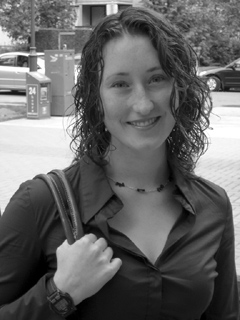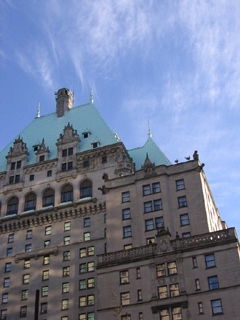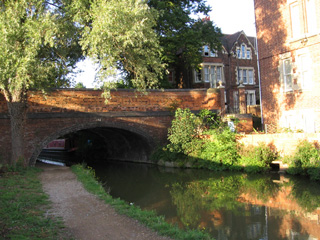In less than a week, I will be in Vancouver. This astonishing thought has partially provoked the cascade of attempted task completion that my life should turn into between now and then. I have even been wandering around inside the insane labyrinth that is the OUSSG website. Frankly, I am scared of it. I have never seen so much machinery for doing so little. Far from being a cavernous mass of idle equipment, however, it seems more like a mechanical elephant trying to balance on a ball. If the beast manages it, everyone cheers. As the supposed ringmaster, you have better make sure not to do and prodding of either beast or ball, if you want to keep all upright.
Once I get my bike back tomorrow, many of these tasks should be sped up. I could have had it back today, but there were unresolved issues regarding the seat. I’ve finally decided to replace the one transferred from a derelict after the original was stolen with a proper one. Hopefully, this one will last the year without being stolen. Once you add up the seat, bits and bobs, and the cost of installation (I don’t have the tools) it ends up being more than $50.
Inventing a system for sorting printed materials related to the thesis is another project. I got a big plastic box and some hanging file folders. The current mixture of notebooks and loose documents in binders does not lead itself to the easy access of any one item. There is also a certain expectation bound up in the box, which remains nearly empty. With less than a year left, it is time to start the great bulk of the task in earnest.
Timeline for Oxford withdrawal?
Another situation that certain strategic planners would understand well relates to the Vancouver trip. One the one hand, I could use this opportunity to ship over either things that I already own in Vancouver and have wanted all year (like my 50mm f/1.8 lens) or newly purchased items of a necessary sort. The trouble with this is that I have no viable exit strategy for even the items I already have here. I lack the strategic lift capability to shift back items accumulated here: especially books. While dishes and other necessities of life can be sold or given to friends who are staying on, books and papers are the kind of thing that I should bring back with me – especially if I am to subsequently do a PhD in a related area.
The other option, then, is to begin the process of re-locating back to Vancouver. I could use any extra space in my luggage to start bringing back things that I do not really need but want to keep (like books that have already been read, or hard copies of photos). A complicating factor is uncertainty about whether I will even be in Vancouver for a substantial period of time during the next half decade or so. It could just be a case of touching base there before heading outwards again: to work, travel, or go to school.



